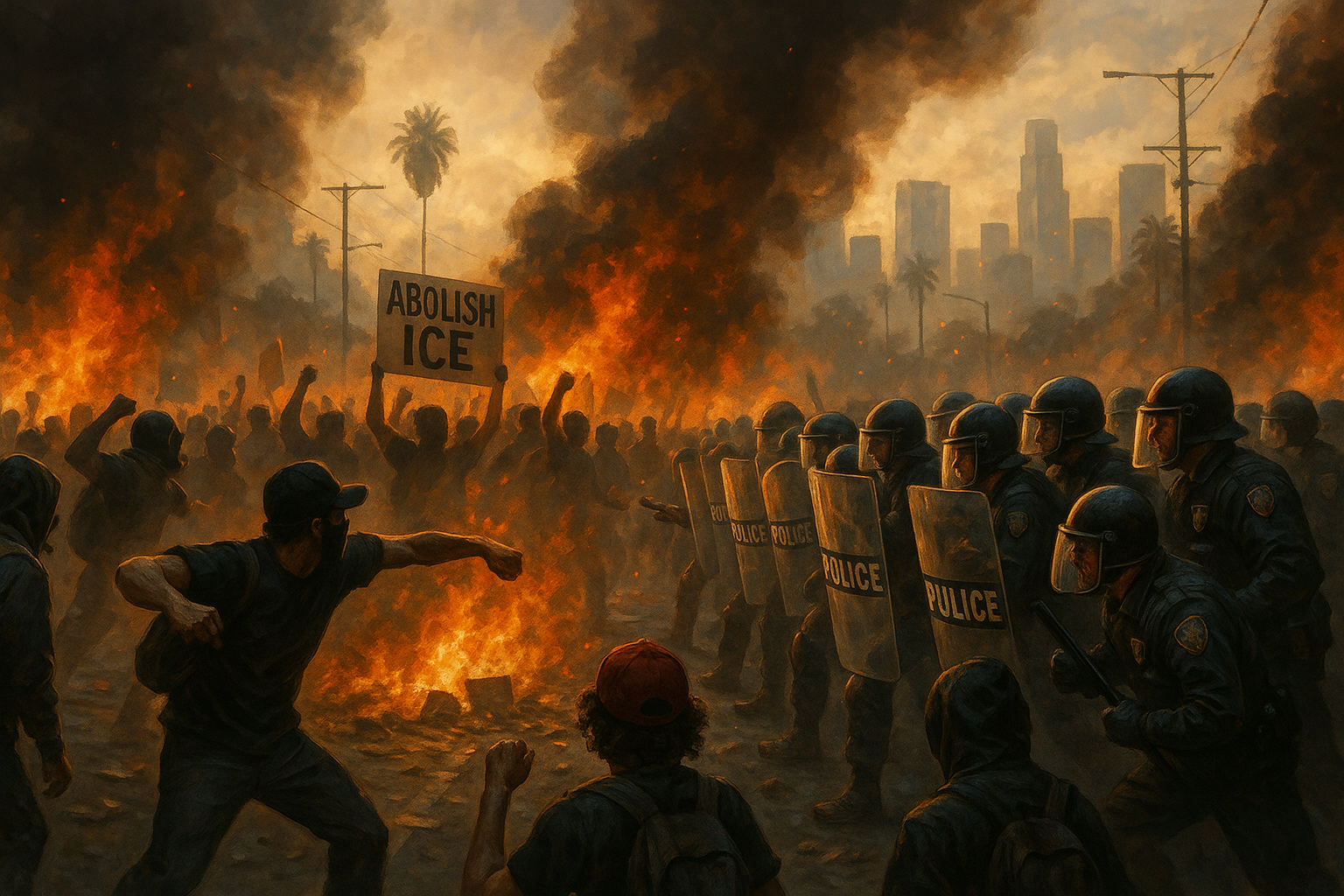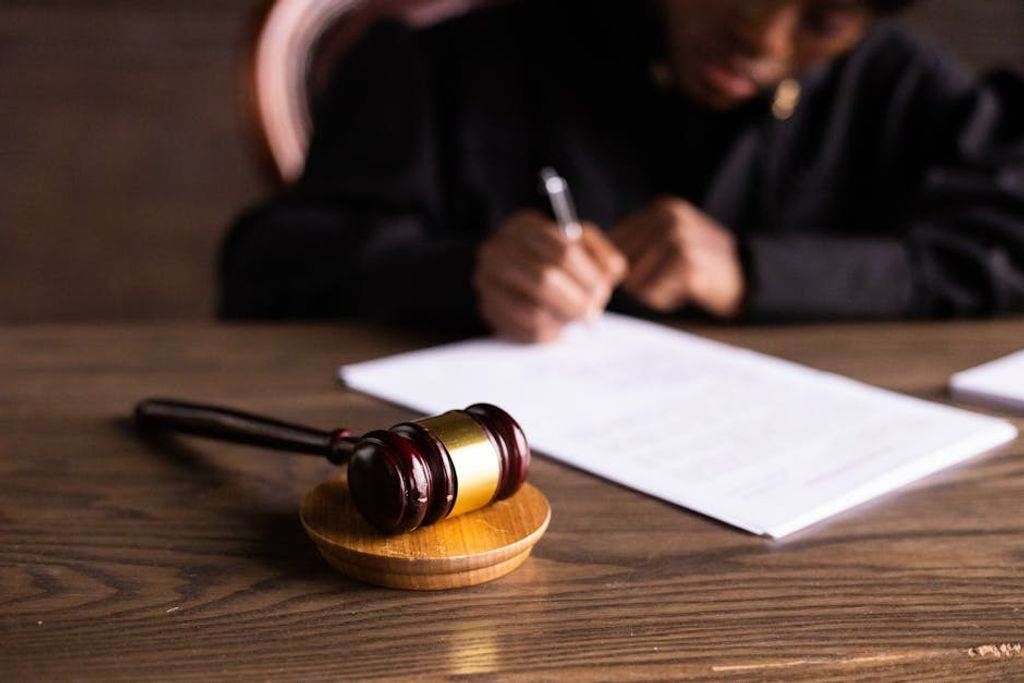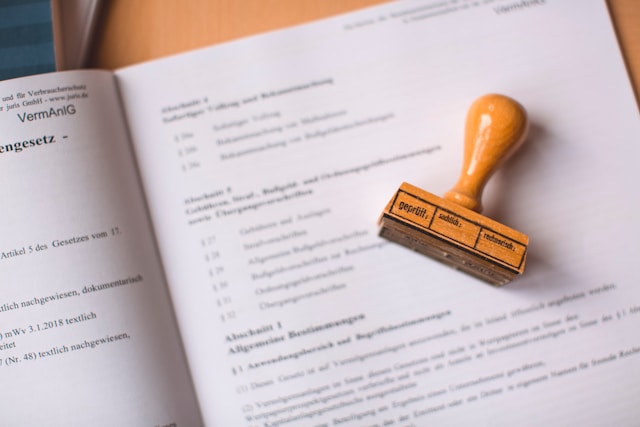Law and Order: A Torah Perspective on Law Enforcement and Civil Disorder
הרב שי טחןטז סיוון, תשפה12/06/2025The Torah is not silent about law and order. On the contrary, it demands a functioning system of justice, complete with enforcement
תגיות:חוקמשפטאכיפה
צילום: נוצרה על ידי בינה מלאכותית
For those of us who’ve been “missing” the action, it looks like the riots on the American streets are making a comeback—and this time it’s Los Angeles’ turn. Burning, looting, breaking— all the blessings of the good old protests we saw four years ago. Just like then, when governors allowed it to continue, this time too they aren’t stopping it—only now, it looks like the president isn’t playing anymore and is determined to crack down on the garbage. Let’s try to see what the Torah perspective is on this.
In Parashat Shoftim, we are commanded: “Judges and officers shall you appoint in all your gates” (Devarim 16:18).
“Judges and officers shall you appoint in all your gates” (Devarim 16:18).
Rashi explains:
• Judges – Refers to scholars who issue rulings.
• Officers – Those who enforce the rulings of the judges, using force if necessary, with rods and straps until the litigant accepts the judge’s verdict.
The Rambam, in Hilchot Sanhedrin (1:1), codifies this as a positive mitzvah:
“It is a positive Torah commandment to appoint judges and officers in every province and district, as it says, ‘Judges and officers you shall appoint in all your gates.’ Judges are those who rule on legal matters; officers are those with the power to enforce those rulings. They patrol markets and streets to ensure fairness, correct dishonesty, punish wrongdoers, and bring violators to justice under the authority of the courts.”
The phrase “in all your gates” implies that this obligation applies not only in Eretz Yisrael but in every community worldwide, including outside the Land (Radbaz).
The Sefer HaChinuch (Mitzvah 491) echoes this:
“It is a mitzvah to appoint judges and officers to compel the observance of the Torah’s commandments and return deviants to the path of truth by force if necessary. They are to command what is proper and prohibit what is disgraceful.”
This reveals two core functions of law enforcement according to Torah:
1. To enforce religious observance and Torah law.
2. To uphold public order and morality.
Therefore, the Sages prohibited Torah scholars from residing in a city without a functioning Beit Din that has authority to punish and imprison (Sanhedrin 17b; Rambam Hilchot De’ot 4:23).
Universal Obligation: Law Enforcement Among Non-Jews
Remarkably, this principle is not limited to the Jewish people. The Rambam (Hilchot Melachim 9:1) writes that Adam HaRishon was commanded on six mitzvot, and Noach was later given a seventh—eating flesh from a living animal. Among the original six is the obligation of dinim—establishing a system of law.
In Halacha 14, the Rambam elaborates: “They must appoint judges in every district to adjudicate these six mitzvot and to warn the people. A gentile who violates any of the seven Noachide laws is liable to penalty.
Law Enforcement Is Essential for Civil Society
From all the above, the Torah’s position is clear: there is a divine imperative to appoint and empower a system of law enforcement—one that not only upholds religious truth but protects public safety and justice.
This theme is powerfully expressed by Rabbi Chanina (Avot 3:2): “Pray for the welfare of the government, for without fear of it, people would swallow each other alive.”
The Tiferet Yisrael offers a haunting interpretation:
We might be mistaken to rely on four factors that seem likely to restrain a powerful person from harming another: (1) fear of Heaven, (2) love or friendship toward the other person, (3) awareness of the severe consequences of causing harm, and (4) recognition that there is no personal gain in doing so. Yet even these may not be enough. Without fear of government punishment, they often fail. That is why the Mishnah emphasizes that only the fear of government keeps the strong from devouring the weak—even while they are still alive and fully conscious of the pain.
He adds: “Therefore, do not merely pray that the government not rebel or collapse. Pray also for the peace and well-being of its leaders—physically, domestically, and politically—so they have the strength and clarity to oversee the public good.”
Conclusion
The Torah is not silent about law and order. On the contrary, it demands a functioning system of justice, complete with enforcement. Calls to abolish or defund law enforcement are, from a Torah standpoint, both dangerous and morally misguided. The absence of such a system endangers not only religious life but the very survival of civil society.
In Parashat Shoftim, we are commanded:

צילום: נוצרה על ידי בינה מלאכותית
Rashi explains:
• Judges – Refers to scholars who issue rulings.
• Officers – Those who enforce the rulings of the judges, using force if necessary, with rods and straps until the litigant accepts the judge’s verdict.
The Rambam, in Hilchot Sanhedrin (1:1), codifies this as a positive mitzvah:
“It is a positive Torah commandment to appoint judges and officers in every province and district, as it says, ‘Judges and officers you shall appoint in all your gates.’ Judges are those who rule on legal matters; officers are those with the power to enforce those rulings. They patrol markets and streets to ensure fairness, correct dishonesty, punish wrongdoers, and bring violators to justice under the authority of the courts.”
The phrase “in all your gates” implies that this obligation applies not only in Eretz Yisrael but in every community worldwide, including outside the Land (Radbaz).
The Sefer HaChinuch (Mitzvah 491) echoes this:
“It is a mitzvah to appoint judges and officers to compel the observance of the Torah’s commandments and return deviants to the path of truth by force if necessary. They are to command what is proper and prohibit what is disgraceful.”
This reveals two core functions of law enforcement according to Torah:
1. To enforce religious observance and Torah law.
2. To uphold public order and morality.
Therefore, the Sages prohibited Torah scholars from residing in a city without a functioning Beit Din that has authority to punish and imprison (Sanhedrin 17b; Rambam Hilchot De’ot 4:23).
Universal Obligation: Law Enforcement Among Non-Jews
Remarkably, this principle is not limited to the Jewish people. The Rambam (Hilchot Melachim 9:1) writes that Adam HaRishon was commanded on six mitzvot, and Noach was later given a seventh—eating flesh from a living animal. Among the original six is the obligation of dinim—establishing a system of law.
In Halacha 14, the Rambam elaborates: “They must appoint judges in every district to adjudicate these six mitzvot and to warn the people. A gentile who violates any of the seven Noachide laws is liable to penalty.
Law Enforcement Is Essential for Civil Society
From all the above, the Torah’s position is clear: there is a divine imperative to appoint and empower a system of law enforcement—one that not only upholds religious truth but protects public safety and justice.
This theme is powerfully expressed by Rabbi Chanina (Avot 3:2): “Pray for the welfare of the government, for without fear of it, people would swallow each other alive.”
The Tiferet Yisrael offers a haunting interpretation:
We might be mistaken to rely on four factors that seem likely to restrain a powerful person from harming another: (1) fear of Heaven, (2) love or friendship toward the other person, (3) awareness of the severe consequences of causing harm, and (4) recognition that there is no personal gain in doing so. Yet even these may not be enough. Without fear of government punishment, they often fail. That is why the Mishnah emphasizes that only the fear of government keeps the strong from devouring the weak—even while they are still alive and fully conscious of the pain.
He adds: “Therefore, do not merely pray that the government not rebel or collapse. Pray also for the peace and well-being of its leaders—physically, domestically, and politically—so they have the strength and clarity to oversee the public good.”
Conclusion
The Torah is not silent about law and order. On the contrary, it demands a functioning system of justice, complete with enforcement. Calls to abolish or defund law enforcement are, from a Torah standpoint, both dangerous and morally misguided. The absence of such a system endangers not only religious life but the very survival of civil society.
הוסף תגובה
עוד מהרב שי טחן
עוד בנושא אקטואליה








